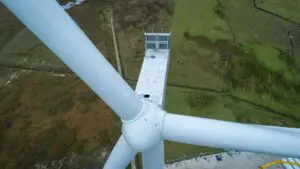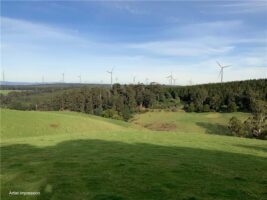A new consortium hopes to become Australia’s first community owned retailer, with big plans to build, generate and sell renewable energy in the northern rivers region of NSW around Byron Bay and Lismore.
Northern Rivers Energy, a company being formed by a consortium of “forward thinking citizens” in the area has won a $54,000 grant to develop a business plan and conduct a feasibility study.
The plan includes creating a company with both retailing and generation, and an asset management arm that could invest in generation, help finance rooftop solar and distributed generation for poorer households and, maybe some time down the track, even help buy back the grid.
Community owned retailers are common in Europe and the US, particularly in Germany where it is common for retailers and local network operators to be owned by local councils. In recent years, many of the network management contracts have returned to community ownership out of frustration with the actions – or lack of them – of major utilities.
A similar theme is running through Australia, with renewable energy popular with the community, solar penetration running at the highest in the world, and growing frustration with energy retailers.
NRE spokesperson Alison Crook says community owned retailers are needed because the major utilities are not delivering what the community wants.
“There is no interest whatsoever in getting more renewable energy used in the area. All sorts of disincentives are being put in place … and we are told we have to use gas, and other stuff that we don’t need.”
Crook, a former Australian business woman of the year , who was also awarded an AO for services to public administration, says the northern rivers region, with its progressive community, and councils, made it the perfect area to test the concept.
“We think if it can be done anywhere, it can be done here,” she told RenewEconomy in an interview. “If we can demonstrate it can work, and there is no reason it shouldn’t because it is working in other countries, then others will follow.
“Here in the Northern Rivers we have all the ingredients necessary to demonstrate that communities can meet their energy needs without relying on fossil fuels and can live in greater harmony with the environment, and still flourish.”
The consortium hopes that the retailer can be in place in 2015. So far it is being cautious about predicting the size and scope of the business until it has completed its feasibility study.
 Consortium member Patrick Halliday, director of Byron Bay-based solar installer Juno Energy, says much of the renewable energy will be based around rooftop solar and solar hot water. There is already a high take up in the region.
Consortium member Patrick Halliday, director of Byron Bay-based solar installer Juno Energy, says much of the renewable energy will be based around rooftop solar and solar hot water. There is already a high take up in the region.
“This area will be mostly about energy efficiency, solar hot water, and solar PV. Each home, school and business can create energy and we can assist them to use as little energy as possible.”
Jobs would also be a key focus, as would energy storage. “This is not a battle against the big 3 (retailers). It’s more about a local community that believes in renewables and wants to enjoy the social , environmental and job possibilities that come with it.”
In its briefing document, the NRE says it aims to cover the entire Northern Rivers Region, covering the Tweed, Kyogle, Byron, Lismore Ballina, Richmond Valley and Clarence Valley local government areas.
NRE aims to:
- Provide renewable energy at competitive prices and purchase solar and other renewable energy at a fair price from residential, commercial and government system owners.
- Facilitate community investment in larger (medium) scale renewable energy projects. Such projects may be initiated from anywhere in the community.
- Provide and maintain renewable energy equipment including energy storage equipment.
- Enable purchase of equipment by consumers through lease, finance, or power purchase agreements.
- Partner with social housing providers, caravan parks, retirement villages, and owners of multi-occupancy dwellings to facilitate access to renewable energy and efficient solutions for people on low incomes.
- Develop and operate a not for profit arm focussing on Energy Literacy (education and demand management). This would run a range of community based programs aimed at lowering demand and increasing efficiency of use.
- Facilitate more efficient energy use through innovation, more effective equipment, demand management systems and incentive schemes.
- Create jobs in the region in all aspects of the company’s business, and through purchasing from local providers and suppliers.
Crook says the consortium aims to be competitive in pricing, and to deliver jobs and environmental benefits. Some time down the track, it may include looking at the network.
“Our initial stance in not to re-invent the wheel. We are hearing all sort of things about network – about privatisation and selling it off. If that were to happen, quite clearly we would want to be in there talking.”
The money for the business plan and feasibility study is being made available by the Total Environment Centre, an NGO, and NSW Government’s Office of Environment and Heritage.
NRE is believed to have beaten another consortium based in the area, Cape Byron Power, that was based around the owners of sugar mill cogeneration plants.
The TEC’s Mark Byrne said he hoped Northern Rivers Energy could work with Cape Byron and other renewable energy generators. “We hope NRE will be able to work with regional renewable generators to turn the vision into a reality,’ he said.
Those interested are invited to go to the website: www.nre.org.au and register to obtain more information or participate in the project.






